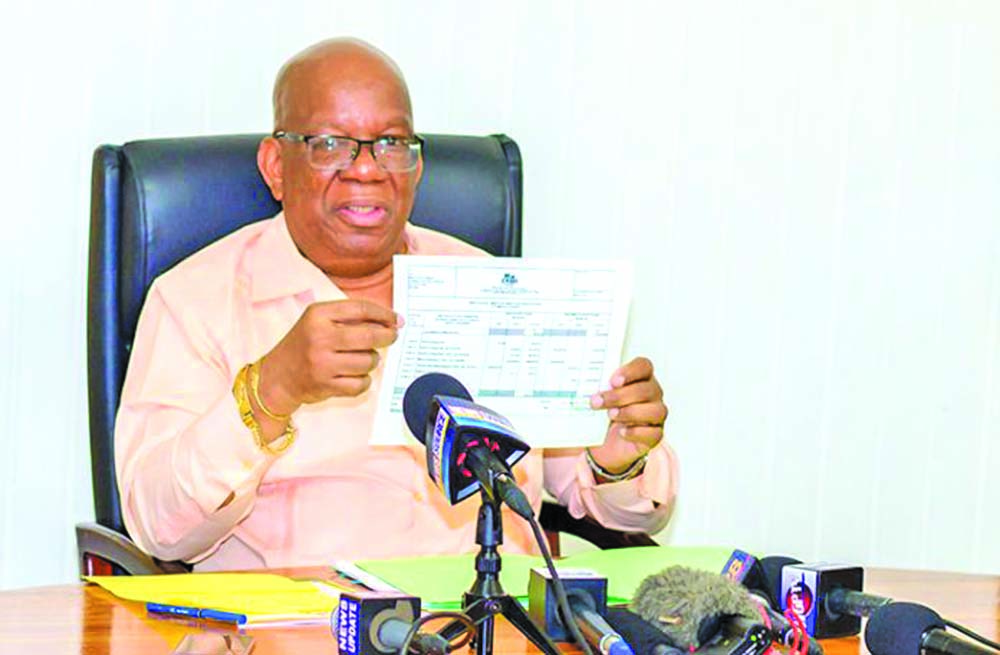Home Top Stories Govt advised not to change signed oil contracts – Finance Minister
…US$20M World Bank loan to be used to develop oil & gas framework
Far from renegotiating the contracts already signed with oil companies that leave more to be desired, Government appears to be following the advice it has received from multi-nationals that there is nothing they can do to correct prior contracts.
This was disclosed by Finance Minister Winston Jordan, during a press conference on Friday. According to the Minister, multinationals like the  International Monetary Fund (IMF) have done a range of studies.
International Monetary Fund (IMF) have done a range of studies.
“I think mostly the IMF have come up with the fact that (they) understand what (we) have and so on, (but) the template these days is not to go this route. But they made it very, very clear. There’s nothing you can do with those you’ve already signed.
“Whatever they are recommending is going forward. I have a petroleum fiscal regime that is supposed to be best practice international, which they would like to see us put in place. But it would not affect any contracts we have already signed. It is a blueprint going forward for any other arrangements we enter into.”
That being said, Jordan acknowledged the concerns being expressed from several sections of society. But he noted that the IMF and other organisations were helping the Government to formulate legislation. This includes the provision of a loan which will be turned towards capacity building.
“We have a loan coming up from the World Bank, I think about US$20 million, for oil and gas development. One aspect of that is to look at the pieces of legislation we have to put in place to improve the architecture of the sector.
“Right now, except for the existing piece of legislation, we have no direct legislation like the local content, the SWF [Sovereign Wealth Fund], the Petroleum Commission, the petroleum fiscal regime legislation. Plus, we don’t have people to draft them, so with this loan, we have to bring people to help us draft these pieces of legislation.”
The contract
The contract between the coalition Government, ExxonMobil and its partners in the Stabroek block was signed in June 2016. Since its release last year, there has been resounding criticism of its terms.
For one thing, ExxonMobil and its partners in the Stabroek block were able to secure exemptions from paying Corporation, Excise or Value Added Tax on their earnings from petroleum.
Article 15.4 of the renegotiated contract also provides for the Government itself to pay the company’s income tax. To facilitate this, the oil company has to submit tax returns to the Government. That is not all. Article 32 stipulates that Government cannot modify the contract or increase any fiscal obligation the company has.
This, therefore, puts a cap on the taxes, royalties, duties, fees, or charges outlined in the contract. Government also has to compensate the operator if a change to existing laws causes loss of revenue for the company.
Some have since suggested that Government avail itself of the services of international lawyers known for renegotiating contracts. Natural Resources Minister Raphael Trotman had announced last month that the terms of the contract would be reviewed in four years.
 International Monetary Fund (IMF) have done a range of studies.
International Monetary Fund (IMF) have done a range of studies.